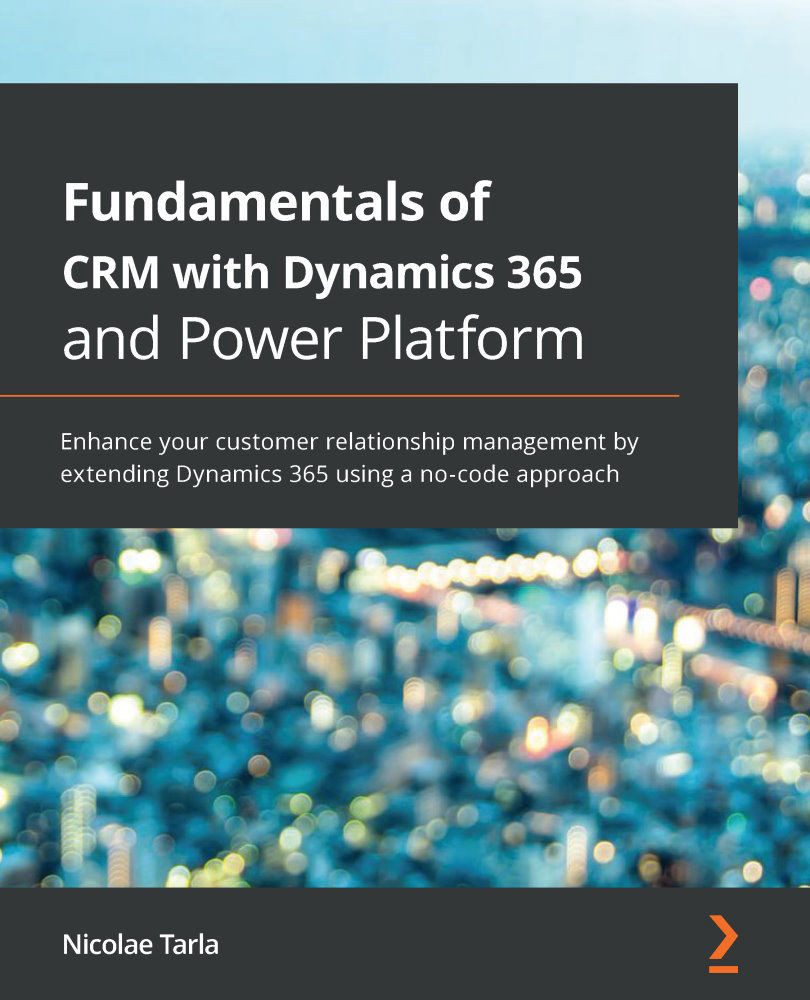In the context of Dynamics 365, processes is a generic category that covers a few functional features grouped together. A process is any type of automation introduced as part of customizing the system, and it involves multiple actions grouped together. As such, some examples of processes supported by the platform include dialogs (deprecated), workflows, actions, and Business Process Flows.
In the context of customizing Dynamics 365, processes are created and grouped as part of one or more solutions. Within the solution, processes are listed as a separate category and are accessible on their own configuration tab.
The core platform comes with a set of processes already defined. If we open a solution and go to Add Existing on the ribbon, one of the options presented is Process. The following screenshot shows a list of existing processes that can be added to your solution:

For a classic representation, we can also drop into Classic mode by expanding the ellipsis...


